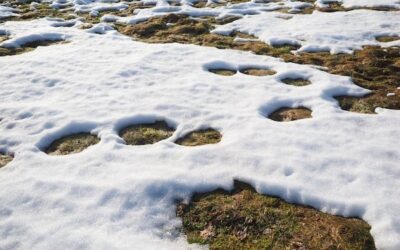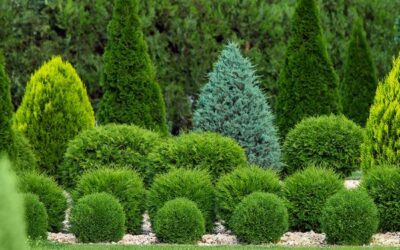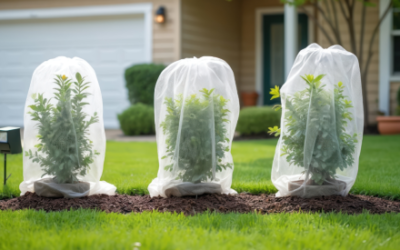Making your garden more eco-friendly is a great way to reduce your carbon footprint and help the environment. There are a variety of simple and affordable changes that you can make to your garden to make it more sustainable and eco-friendly. Here are seven steps for making your garden more environmentally friendly.
1. Choose Native Plants
When selecting plants for your garden, opt for native plants that are adapted to the climate of your area. This will ensure your soil already contains all the nutrients your plant will need. Native plants require less water and fertilizer, and they also provide habitat and food to native wildlife. Native plants have a deep root system making them more sustainable. These deep root systems help them to survive both heavy rains and droughts.
2. Create Compost
Composting is a great way to reduce the amount of waste in your garden and to create nutrient-rich soil. You can create compost piles using kitchen scraps and yard waste. By using compost to fertilize your garden, you’re reducing the need for synthetic fertilizers, which can leach into the soil and contaminate groundwater. Compost also helps to reduce the amount of carbon dioxide in the air, as the composting process breaks down the organic materials and releases carbon dioxide back into the atmosphere. Composting is an easy and effective way to help your garden and the environment. By taking the time to compost your organic materials, you can help to create a healthy and sustainable garden.
3. Use Natural Pest Control
Using natural pest control in your garden is a great way to keep pests away without using harsh chemicals. It’s an eco-friendly and safe way to protect your plants and ensure a healthy and thriving garden. Try using natural pest repellents like garlic, onion, or cayenne pepper to keep bugs away. You can also plant pest-control herbs like mint, rosemary, and lavender to deter bugs, and have the added benefit of being a tasty addition to your cooking.
4. Reduce Lawn Size
Lawns require a lot of water and maintenance, so reducing the size of your lawn is a great way to make your garden more sustainable. Consider replacing part of your lawn with native plants or a permeable surface like gravel or decomposed granite.
5. Collect Rainwater
Installing rain barrels or cisterns is a great way to collect and store rainwater for watering your garden. Doing this will conserve precious water resources by reducing the amount of water used from municipal water lines. Furthermore, the rainwater is a natural fertilizer that can help improve soil quality and protect plants from disease. This can save you money on your water bill and help conserve water.
6. Use Mulch
Mulching your garden is an eco-friendly choice that helps conserve water, reduce weed growth, and improve soil fertility. It also helps keep your garden looking neat and tidy. Plus, it’s an easy way to give your plants the nutrients they need. Mulch helps to reduce water loss by trapping moisture in the soil, which in turn reduces the amount of water needed for your garden. This helps to conserve precious natural resources, and also reduces the amount of runoff and erosion, which can be damaging to nearby water sources.
7. Plant Trees and Shrubs
Trees and shrubs provide numerous benefits to the environment. Planting trees and shrubs can help reduce air pollution, provide shade and habitat, and reduce water use in your garden by providing windbreaks and shade. They act as natural air filters, absorbing pollutants and producing oxygen. They also help conserve energy by providing shade in your garden and blocking strong winds. Furthermore, the roots of the trees and shrubs help to stabilize the soil, preventing erosion.
By making these seven simple and affordable changes to your garden, you can make it more eco-friendly and reduce your carbon footprint. Not only will you be helping the environment, but you will also be creating a beautiful, sustainable garden that you can enjoy for years to come. As you tackle garden projects such as mulching, reach out to us at Jack’s Lawn Care & Landscaping to find out more about all of our professional landscaping services.



